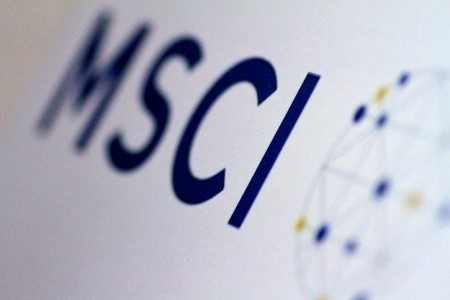




Policy Rate Updates: BSP outlook — cloudy with a chance of rate cut
 DOWNLOAD
DOWNLOAD

January Economic Update: Growth slows, prices rise
 DOWNLOAD
DOWNLOAD

Inflation Update: Up, up, and away?
 DOWNLOAD
DOWNLOAD


Stocks seen ending higher for third straight week

Aug 5 (Reuters) – Emerging market stocks rallied on Friday, looking to end a third straight week higher, while Romania was seen capping off a busy central bank week with a 1 percentage point hike in interest rates.
MSCI’s index of emerging market stocks hit a one-month high, and was last up 0.9% with the gains largely broad-based.
Focus now turns to US non-farm payrolls data for July as the US Federal Reserve tries to cool labour demand to tame inflation. The number is seen rising to a lesser extent than last month.
Taiwan shares closed up 2.3%, while Chinese blue-chips added 1.4%. With the exception of Turkish and Russian stocks, most other bourses in emerging Europe, Middle East and Africa gained.
In a week marred by geopolitical worries over Taiwan, and downbeat PMIs fueling growth worries, Beijing’s promise of more support to the local market and economy, as well US data that allayed some fears of the world’s biggest economy slipping into recession, helped assets of the developing world.
Stocks were seen ending the week up about 1%, while currencies up 0.1%.
“We expect emerging market stocks to deliver mid-single-digit positive total returns this year… given attractive valuations, still-constructive earnings growth prospects, and easing macroeconomic policy in China,” Alejo Czerwonko, CIO emerging markets Americas at UBS Global Wealth Management, said in a note.
Ahead of a decision by Romania’s central bank later in the day, the leu was flat.
Five out of seven analysts polled by Reuters expect policymakers to raise Romania’s benchmark interest rate by one percentage point again to 5.75%. This would be the bank’s eighth consecutive monthly hike since October.
This comes after the Reserve Bank of India raised its key rate by 50 basis points to 5.40%, the third increase in the current cycle. The rupee was flat.
“We expect the RBI to follow up with more moderate tightening ahead,” said Mitul Kotecha, head of EM strategy at TD Securities, expecting the next hike in September. “We maintain our terminal rate expectation of 6.0% by Q1 2023.”
Most emerging market central banks, bogged by stubbornly high inflation and the Fed on a tightening path, have embarked upon tightening cycles.
On Thursday, the Czech rate was kept steady at 7%. Some analysts suggest that another rate hike in September may be needed to assuage investors. Late on Wednesday, Brazil’s central bank signalled a ‘residual’ smaller hike at its next meeting after raising by 1,225 bps since March last year.
(Reporting by Susan Mathew in Bengaluru; Editing by Shailesh Kuber)
This article originally appeared on reuters.com





 By Reuters
By Reuters